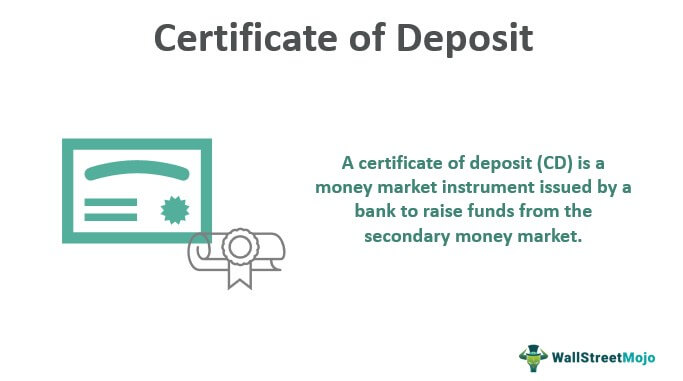Personal Finance
Which Type of Savings Or Investment Choice Allows for Deposit Or Withdrawal of Money As Needed
Choose the right option to access your money anytime you need it.
Published
2 years agoon
By
Mario
When it comes to managing your money, there’s one thing that’s just as important as making it: having the ability to access it when you need it.
That’s where savings and investment choices come in, which let you deposit money and withdraw it as needed without being locked in for a certain amount of time.
The flexibility of instantly accessed money allows you to have the freedom of your assets and potentially invest them in something else or have them as a financial safety net.
On the other hand, assets that are instantly accessible tend to have lower interest rates, which means that you’d earn less money over time.
Best Savings and Investment Options Where Your Money Is Instantly Accessible
Savings Account

We’ll start with the tried-and-true savings account.
The ability to deposit and withdraw funds as needed makes this undoubtedly the most fundamental type of savings and investing possibility. Banks and credit unions both provide savings accounts, and the money you deposit is often rewarded with interest.
Savings accounts have the advantage of being FDIC-insured, which means that your funds are protected by up to $250,000 in the event that a bank fails.
Savings accounts frequently allow for minimal minimum deposits and simple money access through checks, ATMs, and online banking.
Money Market Accounts
A money market account is an additional choice for savings and investment alternatives that let deposits and withdrawals of cash as required.
Compared to other types of savings accounts, money market accounts often provide higher interest rates.
To avoid costs, money market accounts may also have higher minimum balance requirements and higher minimum deposit requirements. However, money market accounts provide convenient access to your funds and are FDIC-insured, much like savings accounts.
Certificates of Deposit (CDs)

A certificate of deposit is an additional savings and investing choice that permits deposits and withdrawals of funds as needed (CD).
Banks and credit unions issue certificates of deposit (CDs), which often offer higher interest rates than savings or money market accounts.
The catch with CDs is that in order to receive the higher interest rate, you must maintain your money in the account for a predetermined amount of time (often between three months and five years).
You can be penalized if you take your money out too soon.
Checking Account
The ability to deposit and withdraw funds as needed makes checking accounts another alternative for savings and investing.
Unlike savings accounts, which are created for everyday transactions, checking accounts often do not pay interest on the funds that are deposited.
Your money may typically be accessed quickly from checking accounts through cheques, debit cards, and online banking. With checking accounts, you may also set up a direct deposit and automatic bill payments.

High-Yield Online Savings Account
A high-yield online savings account can be the best option for you if you’re seeking for a high-yield savings account that allows you to deposit and withdraw money as needed.
These accounts, which are only available online, provide higher interest rates than standard savings accounts. The beautiful thing about high-yield online savings accounts is that, like traditional savings accounts, they are FDIC-insured.
Additionally, they typically don’t have minimum deposit restrictions and offer convenient online banking access to your funds.
Mutual Funds
A type of investment known as a mutual fund pools the funds of numerous investors to buy a diverse portfolio of stocks, bonds, or other securities.
Professional money managers that manage mutual funds choose investments on behalf of the fund’s investors.
Although there can be limitations on the minimum amount that can be taken, some mutual funds permit investors to withdraw their money on a daily or monthly basis.
Additionally, you can be charged fees or be penalized for early withdrawals from some mutual funds.

Exchange-Traded Funds (ETFs)
Mutual funds and exchange-traded funds (ETFs) both pool the money of many participants to buy a diverse portfolio of securities.
ETFs and mutual funds differ primarily in that ETFs are traded on stock exchanges, much like individual stocks, and that ETFs’ prices move during the day.
Similar to mutual funds, certain ETFs permit investors to make daily or weekly withdrawals of their money, albeit there may be minimum withdrawal requirements. ETFs may also charge redemption fees or charge you a price if you take your money out too soon.
Treasury Bills (T-Bills)
The United States government issues short-term debt securities known as Treasury Bills (T-Bills).
They are sold at a discount to their face value and have maturities of less than a year. T-Bills mature, and you get paid their face value.

T-bills are regarded as low-risk investments since they are very liquid, and you may sell them on the secondary market before they mature, allowing you to access your money whenever you need it.
The Bottom Line
The ability to deposit and withdraw funds as needed in the event of an emergency or unforeseen expense is an important thing to consider when choosing your savings and investment alternatives.
The choices above are only a small sample of the many that are available, so do your research and contrast the various accounts to discover the one that best meets your requirements.
Keep in mind that the secret is to be adaptable and have ready access to your money.
Happy investing and saving!
ALSO READ: How To Get an Income From Your Savings
You may like
-
How to Find the Best Green Technology Start-Ups to Invest In
-
How to Maximize Returns by Investing in Private REITs
-
How to Invest in the Future of Transportation Such as Autonomous Cars and Drones
-
What are the Best Options for Investing in the Circular Economy
-
What are the Best Strategies for Investing in Infrastructure Debt
-
Squirrel vs. Moneybox: A Comparison of Savings and Investment Apps

Best Problem-Solving Strategies In Business

How to Start Affiliate Marketing Through Amazon

How to Plan A Wedding On A Budget

10 Reasons Why Budgeting Is Important














